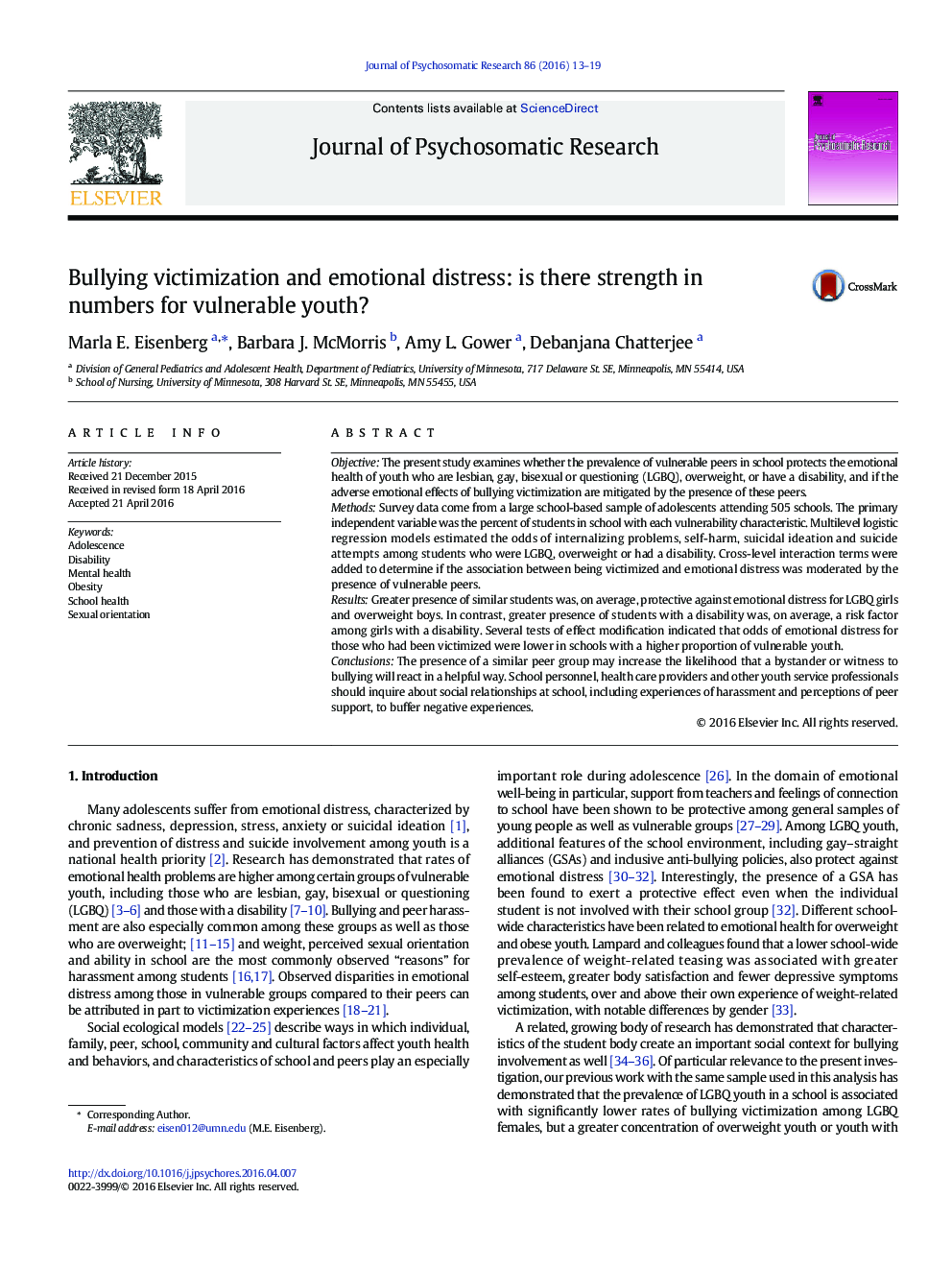| Article ID | Journal | Published Year | Pages | File Type |
|---|---|---|---|---|
| 949123 | Journal of Psychosomatic Research | 2016 | 7 Pages |
•We examined whether the presence of vulnerable peers in school supports well-being in vulnerable students.•Data come from a large school-based sample of adolescents attending 505 schools.•Greater presence of lesbian, gay, bisexual and questioning (LGBQ) peers protected against emotional distress in LGBQ girls.•Greater presence of overweight peers protected against suicide in overweight boys.
ObjectiveThe present study examines whether the prevalence of vulnerable peers in school protects the emotional health of youth who are lesbian, gay, bisexual or questioning (LGBQ), overweight, or have a disability, and if the adverse emotional effects of bullying victimization are mitigated by the presence of these peers.MethodsSurvey data come from a large school-based sample of adolescents attending 505 schools. The primary independent variable was the percent of students in school with each vulnerability characteristic. Multilevel logistic regression models estimated the odds of internalizing problems, self-harm, suicidal ideation and suicide attempts among students who were LGBQ, overweight or had a disability. Cross-level interaction terms were added to determine if the association between being victimized and emotional distress was moderated by the presence of vulnerable peers.ResultsGreater presence of similar students was, on average, protective against emotional distress for LGBQ girls and overweight boys. In contrast, greater presence of students with a disability was, on average, a risk factor among girls with a disability. Several tests of effect modification indicated that odds of emotional distress for those who had been victimized were lower in schools with a higher proportion of vulnerable youth.ConclusionsThe presence of a similar peer group may increase the likelihood that a bystander or witness to bullying will react in a helpful way. School personnel, health care providers and other youth service professionals should inquire about social relationships at school, including experiences of harassment and perceptions of peer support, to buffer negative experiences.
